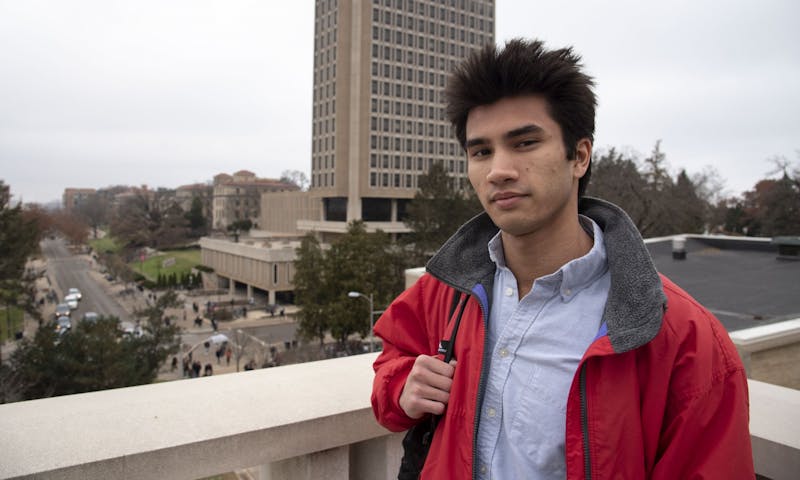
Members within the Deaf community speak out about social barriers, misunderstandings and the controversial use of cochlear implants, which some believe delegitimize American Sign Language.
Image By: Will Cioci
Members within the Deaf community speak out about social barriers, misunderstandings and the controversial use of cochlear implants, which some believe delegitimize American Sign Language.
Image By: Will Cioci“People assume that the only way for Deaf people to survive is to use hearing aids,” wrote UW-Madison student Tobin Zolkowski. “Deaf people do not want to cure their Deafness.”
Zolkowski is one of 466 million deaf people in the world, according to the World Health Organization. He identifies with the Deaf community, which he believes is often misunderstood.
“Many people do not know the difference between ‘deaf’ and ‘Deaf,’” Zolkowski explained. “By ‘deaf,’ we mean an audiological deficiency. By ‘Deaf,’ we mean belonging to the Deaf community and active participation in Deaf culture.”
Socially, being a Deaf student can have many barriers in regard to language and community.
“Some people hate when Deaf people do not talk or make funny noises. Deaf people have different preferences than Hearing people,” Zolkowski wrote. “I believe that there is no Deaf community on campus. Virtually all the Deaf students of my acquaintance graduated last year.”
Not only does being Deaf on a college campus come with constraints, but a lack of understanding of Deaf culture can impact Deaf children from the day they are born. One of these implications is the technology of cochlear implants.
Developed in the 1980s, cochlear implants –– sometimes called a “bionic ear” –– allow for people who otherwise cannot hear to hear, sparking debate within the Deaf community.
Ninety-five percent of babies undergo a hearing test after birth, according to the National Center for Hearing Assessment and Management at Utah University. For babies who fail this test, the medical community often proposes giving the baby cochlear implants.
The development of the technology and the FDA’s approval of its use in babies prompted an immediate response from the Deaf community.
“The initial response was one of fear and/or suspicion,” explained UW-Madison Communication Sciences and Disorders Professor Michelle Quinn. “Fear that if the CIs were totally ‘corrective' that this would mean genocide for/to Deaf Culture, most especially potentially eliminating the need for the use of sign language, and fear because American Sign Language being a source of shared identity and pride passed on from one generation to another.”
While the Deaf community had a strong reaction initially to the implementation of cochlear implants, the rhetoric has softened over time.
“The NAD recognizes the rights of parents to make informed choices for their deaf and hard of hearing children, respects their choice to use cochlear implants and all other assistive devices and strongly supports the development of the child and of language and literacy,” according to the National Association of the Deaf website.
Zolkowski criticized the medical community for encouraging Deaf babies to learn to speak rather than promoting the literacy of sign language, calling it a language deprivation.
“I am not opposed to cochlear implants, but I know that many Deaf people have a strong opinion,” Zolkowski wrote. “Despite their negative attitudes towards cochlear implants, I am a firm believer in bilingualism and biculturalism.”
Quinn echoed the deeply personal decision of whether or not to choose to have the surgical implants.
“What a given person values and who they want to have as communication partners in terms of their own social identity are what I find most influence a given person’s view about cochlear implants,” Quinn said.
The idea of deprivation and disability are entrenched in discussions of deaf people. Zolkowski said this too can be inherently problematic, claiming many people associate deafness with a disability –– creating a negative connotation he does not identify with.